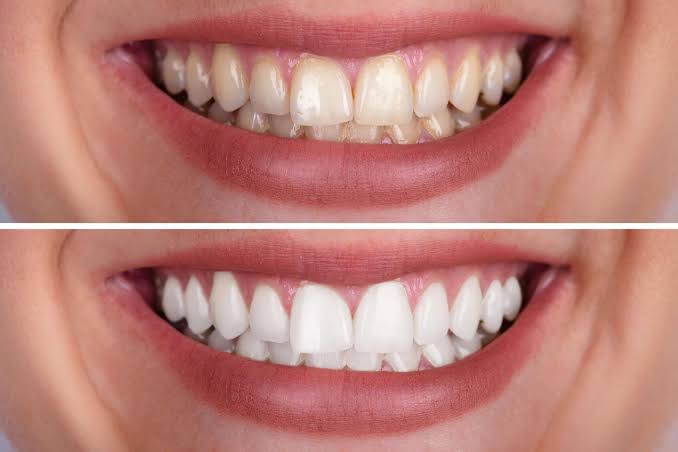You will probably never hear about the benefits of Moringa for hair care. But once you get to know it, Moringa will be your friend and you will include it in your beauty routine. The leaves, seeds and oil extracted from the Moringa plant, which is native to parts of Africa and Asia, all have myriad benefits for hair care. From here, continue reading the following lines and learn about the benefits of the Moringa plant in intensifying and treating hair loss.
Causes of hair loss in women
It is normal for every woman to feel anxious and nervous when she sees her hair falling out day after day. But before you look for solutions for hair loss and hair care, it is necessary to pay attention that hair loss reveals a lot about your health condition because sometimes hair loss may be a symptom of health problems. From here, here are the main health causes of hair loss:
Hormonal imbalance causes hair loss
Hair loss in women may be due to hormonal changes that occur in their bodies due to pregnancy, birth control pills or the menstrual cycle. The change in hormones during pregnancy causes hair to stop at the growth stage, hair grows faster, looks thicker, and natural hair loss decreases dramatically during pregnancy. But after childbirth, estrogen levels return to normal, causing large amounts of follicles to enter the resting phase, and thus hair loss begins in the new mother after birth.
Alopecia causes hair loss
Alopecia is a skin disease that affects areas where hair grows. This disease results in hair loss and the appearance of oval-shaped spots at the site of loss, accompanied by redness in the area. Before starting the treatment of alopecia, it is necessary to diagnose the disease with a dermatologist and do some laboratory tests to find out the appropriate treatment.
Underactive or overactive thyroid gland causes hair loss
The thyroid gland is primarily responsible for secreting hormones responsible for regulating the metabolism of cells in the body. Therefore, any imbalance in the levels of thyroid hormones negatively affects a woman’s health, especially as this gland contributes to stimulating the head follicles, and therefore disturbances in their rates lead to hair loss.
Chemotherapy causes hair loss
Undergoing chemotherapy causes hair loss. This is because treatment drugs attack the rapid growth of cancer cells, and they can also attack the rapid growth of other cells in the body, including hair roots, which leads to hair loss.
Androgenetic alopecia causes hair loss
Androgenetic alopecia is caused by the male hormone testosterone and changes in the natural cycle of hair growth. It appears more after menopause, as all the hair on the head becomes thinner and thicker, which leads to the stopping of hair growth in certain parts of the scalp completely. There are many medical preparations and treatment methods, such as the hair transplant technique practiced by the treating physician after diagnosing the condition, and blood tests and hormone tests to treat hereditary hair loss.
Anemia causes hair loss
Lack of iron and protein in the body causes anemia or anemia. Symptoms of anemia are not limited to cases of fatigue or lethargy only, but can cause hair loss. Hair is one of the first organs affected by anemia, as the body deals with hair as it is the least important among its organs. Therefore, when suffering from anemia, the body begins to stop supplying hair with basic elements and provides them to organs more important to it, such as the liver and kidneys. From here, the hair begins to be negatively affected by anemia, and the problem of hair loss begins to appear.
Moringa benefits for hair
- Moringa contains a large amount of vitamin A, which is essential for hair growth and maintaining its health.
- Moringa plays an essential role in the growth of good cells and tissues in your body, thus reducing hair loss.
- The zinc in the moringa plant boosts the immunity of your hair, while the vitamins E and C stimulate blood circulation in the scalp.
How to use moringa for hair
You can use moringa for hair in the form of an oil. All you have to do is massage moringa oil all over the scalp to get rid of hair loss, breakage and dandruff problems. Applying Moringa oil to a damp scalp, then washing hair with water helps remove excess oil and dirt from your hair.
Simple daily tricks to thicken hair and prevent hair loss
In addition to natural recipes and mixtures such as moringa that help you solve the problem of hair loss, here are some simple daily tricks that will get you to your desired goal as soon as possible to enjoy long and thick hair.
Use a hair conditioner because it keeps the fats and proteins inside the hair.
Focus on washing your hair with cold water after each bath.
Don’t brush your hair when it’s wet. Wait some time for it to dry naturally and then style it, and at the same time avoid combing your hair more than once during the day.
When combing your hair, the brush should be soft, flexible, and made of natural fibers.
The best way to style your hair to help it grow is from the bottom up.
Avoid excessive use of a hair dryer.
Never put pressure on your hair or tie it too tightly, because that prevents your hair from growing and causes hair to break.
– Replace your cotton pillow when sleeping with a silk one to prevent tangles and maintain the hydration and growth of your hair.
Make sure to sleep well and for sufficient hours, because lack of sleep causes hair loss and weakness.
Stay away from stress and stress because they negatively affect hair growth.
Do exercise regularly, as it helps relieve stress and improve blood circulation to the hair.
Make sure to eat correct meals that nourish the hair roots, such as leafy vegetables such as spinach, lettuce, and others. In addition to nuts, dried fruits, fish that contain the ideal fatty acids for promoting hair growth, red meat, and fruits rich in vitamin C



